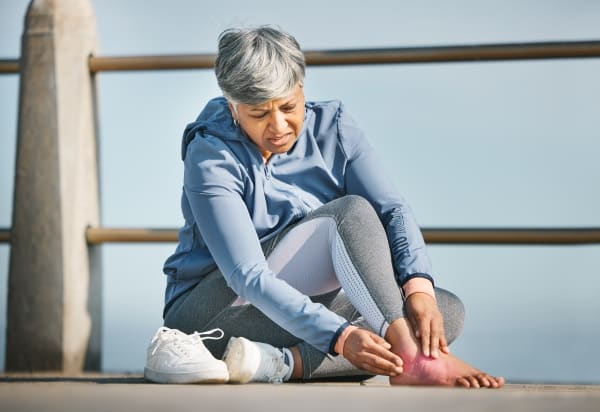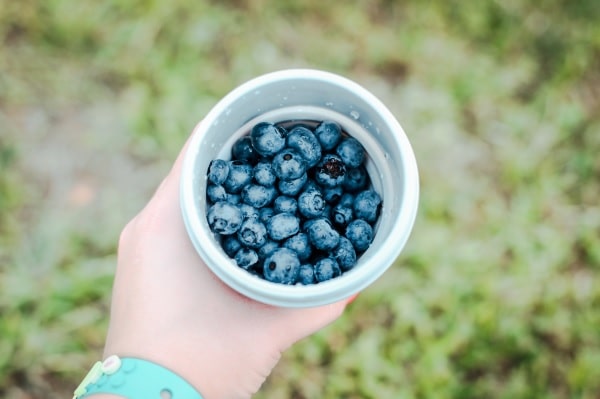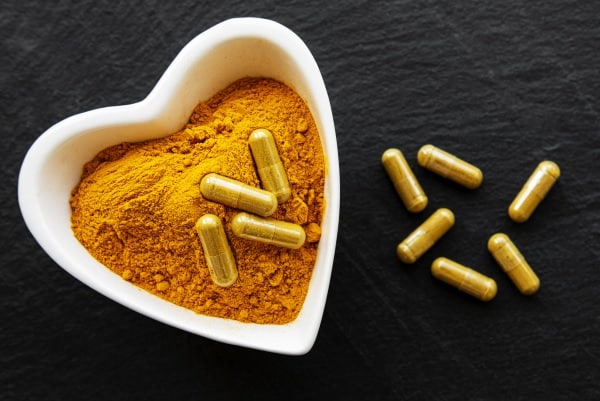Inflammation often gets a bad rap, but it’s actually a natural defense mechanism your body employs to ward off infections and heal injuries. However, when inflammation becomes chronic, it can lead to a host of health issues, from arthritis to heart disease. The good news is that you don’t have to be a medical expert to take steps to reduce inflammation in your body. This post aims to offer you simple, actionable tips that can make a significant difference in your well-being. So, let’s dive into the first crucial aspect: identifying the types of inflammation you might be dealing with.
Contents
- 1 Types Of Inflammation And Their Causes
- 2 The Role Of Diet In Inflammation
- 3 Exercise And Its Anti-Inflammatory Effects
- 4 Stress And Inflammation
- 5 The Importance Of Quality Sleep
- 6 The Mind-Body Connection: Yoga And Tai Chi
- 7 Herbal Teas And Their Anti-Inflammatory Properties
- 8 When To Seek Medical Advice
- 9 Natural Supplements For Reducing Inflammation
- 10 Follow This Guide To Keep Inflammation At Bay!
Types Of Inflammation And Their Causes

Inflammation can be broadly categorized into two types: acute and chronic. Acute inflammation is usually short-term and occurs as a response to injury or infection. It’s characterized by redness, heat, and swelling. On the other hand, chronic inflammation is long-lasting and can persist for months or even years. This type of inflammation is often less noticeable but can be more harmful in the long run.
Understanding the cause of your inflammation is the first step toward effective management. Acute inflammation often results from physical injuries, bacterial infections, or exposure to harmful substances. Chronic inflammation, however, can be triggered by factors like poor diet, lack of exercise, and ongoing stress. Knowing the type and cause of your inflammation can guide you in choosing the most effective treatment options.
The Role Of Diet In Inflammation

Your diet plays a significant role in either fueling or fighting inflammation. Foods high in sugar, saturated fats, and processed carbohydrates are known to promote inflammation. On the flip side, a diet rich in fruits, vegetables, and lean protein can have anti-inflammatory effects. It’s not just about avoiding certain foods; it’s also about incorporating the right ones.
Anti-inflammatory foods include berries, green tea, and fatty fish like salmon and mackerel. These foods contain antioxidants and omega-3 fatty acids, which have been shown to reduce inflammation markers. By making conscious choices about what you eat, you can significantly influence your body’s inflammatory response.
Exercise And Its Anti-Inflammatory Effects

Physical activity is another powerful tool in your anti-inflammation arsenal. Aerobic exercises like walking, swimming, and cycling can improve blood circulation and reduce inflammation markers. Strength training exercises, such as weightlifting, also contribute to muscle building, which can further help in reducing chronic inflammation.
However, the key to reaping the anti-inflammatory benefits of exercise is consistency. Health experts recommend at least 150 minutes of moderate exercise per week. This doesn’t mean you have to hit the gym every day; even simple activities like a daily walk can make a difference. The important thing is to find an exercise routine that you enjoy and can stick with in the long run.
Stress And Inflammation

Stress is more than just a mental or emotional burden; it has tangible effects on your physical health, including promoting inflammation. When you’re stressed, your body releases hormones like cortisol, which, in the short term, can help you deal with immediate challenges. However, chronic stress leads to prolonged cortisol release, contributing to inflammation and various health issues.
To combat the inflammatory effects of stress, consider incorporating stress-reduction techniques into your daily routine. Methods such as deep breathing exercises, meditation, and mindfulness can help you manage stress more effectively. Even dedicating just a few minutes a day to these practices can make a noticeable difference in your inflammation levels.
The Importance Of Quality Sleep

Sleep isn’t just a time for your mind to rest; it’s also when your body performs essential maintenance tasks, including regulating inflammation. Poor sleep quality or insufficient sleep can disrupt these processes, leading to increased inflammation. Studies have shown that people who get less than six hours of sleep per night have higher levels of inflammatory markers.
To improve sleep quality, focus on maintaining a consistent sleep schedule and creating a calming bedtime routine. Avoid stimulants like caffeine and electronic devices close to bedtime, as they can interfere with your sleep cycle. A good night’s sleep is not just refreshing but also crucial for keeping inflammation at bay.
The Mind-Body Connection: Yoga And Tai Chi

The ancient practices of yoga and Tai Chi offer more than just physical exercise; they also promote a mind-body connection that can be incredibly beneficial for reducing inflammation. Both practices combine physical postures, breathing exercises, and meditation to create a holistic approach to well-being. Studies have shown that regular practice can significantly reduce markers of inflammation.
If you’re new to yoga or Tai Chi, consider starting with beginner classes or online tutorials. The key is to find a style and pace that suits you. As you become more comfortable, you can explore more advanced techniques. These practices not only help in reducing inflammation but also improve mental clarity and emotional balance.
Herbal Teas And Their Anti-Inflammatory Properties

Herbal teas are more than just a comforting beverage; they can also be potent allies in your fight against inflammation. Teas like green tea, chamomile, and ginger tea contain antioxidants and anti-inflammatory compounds that can help soothe inflamed tissues. These teas are easy to incorporate into your daily routine and offer a natural way to combat inflammation.
It’s worth noting that while herbal teas can be beneficial, they are not a substitute for a balanced diet and healthy lifestyle. They should be viewed as a supplementary measure, working in tandem with other anti-inflammatory practices. It is always advisable to seek guidance from your healthcare provider before using herbal teas for medicinal purposes, particularly if you are currently taking any medication.
When To Seek Medical Advice

While lifestyle changes can significantly impact inflammation levels, there are instances when medical intervention becomes necessary. Persistent symptoms like joint pain, fatigue, and unexplained weight loss may indicate chronic inflammation that requires professional evaluation. Blood tests, such as C-reactive protein (CRP) and erythrocyte sedimentation rate (ESR), can provide more concrete measures of inflammation.
If you’re experiencing persistent symptoms or your efforts to reduce inflammation aren’t yielding results, it’s time to consult a healthcare provider. They can offer a more targeted treatment plan, which may include medications like anti-inflammatory drugs or specialized therapies. Remember, early diagnosis and treatment can prevent potential complications associated with chronic inflammation.
Natural Supplements For Reducing Inflammation

Natural supplements can serve as a complementary approach to reducing inflammation. Some of the most researched anti-inflammatory supplements include turmeric, fish oil, and ginger. These natural remedies contain compounds that have been shown to inhibit the production of substances that promote inflammation.
However, it’s essential to approach supplements with caution. The efficacy of these products can vary, and they can sometimes interact with medications you may be taking. Always consult a healthcare provider before adding any new supplements to your regimen. They can guide you on the appropriate dosage and ensure that the supplements won’t interfere with any ongoing treatments.
Follow This Guide To Keep Inflammation At Bay!
Reducing inflammation doesn’t have to be a daunting task. Simple changes in your diet, exercise routine, and lifestyle can make a world of difference. Whether it’s choosing anti-inflammatory foods, incorporating stress-reducing techniques, or even sipping on herbal teas, every little bit counts. Take the first step today by implementing just one of these tips into your daily routine. Your body will thank you, and you’ll be well on your way to a healthier, less inflamed you.


